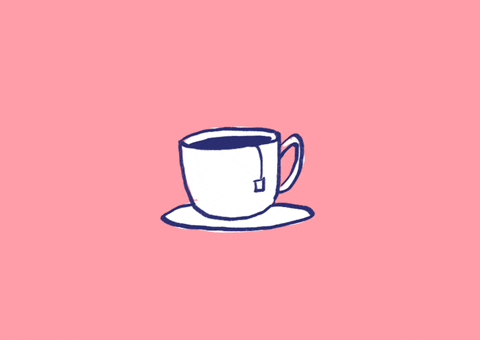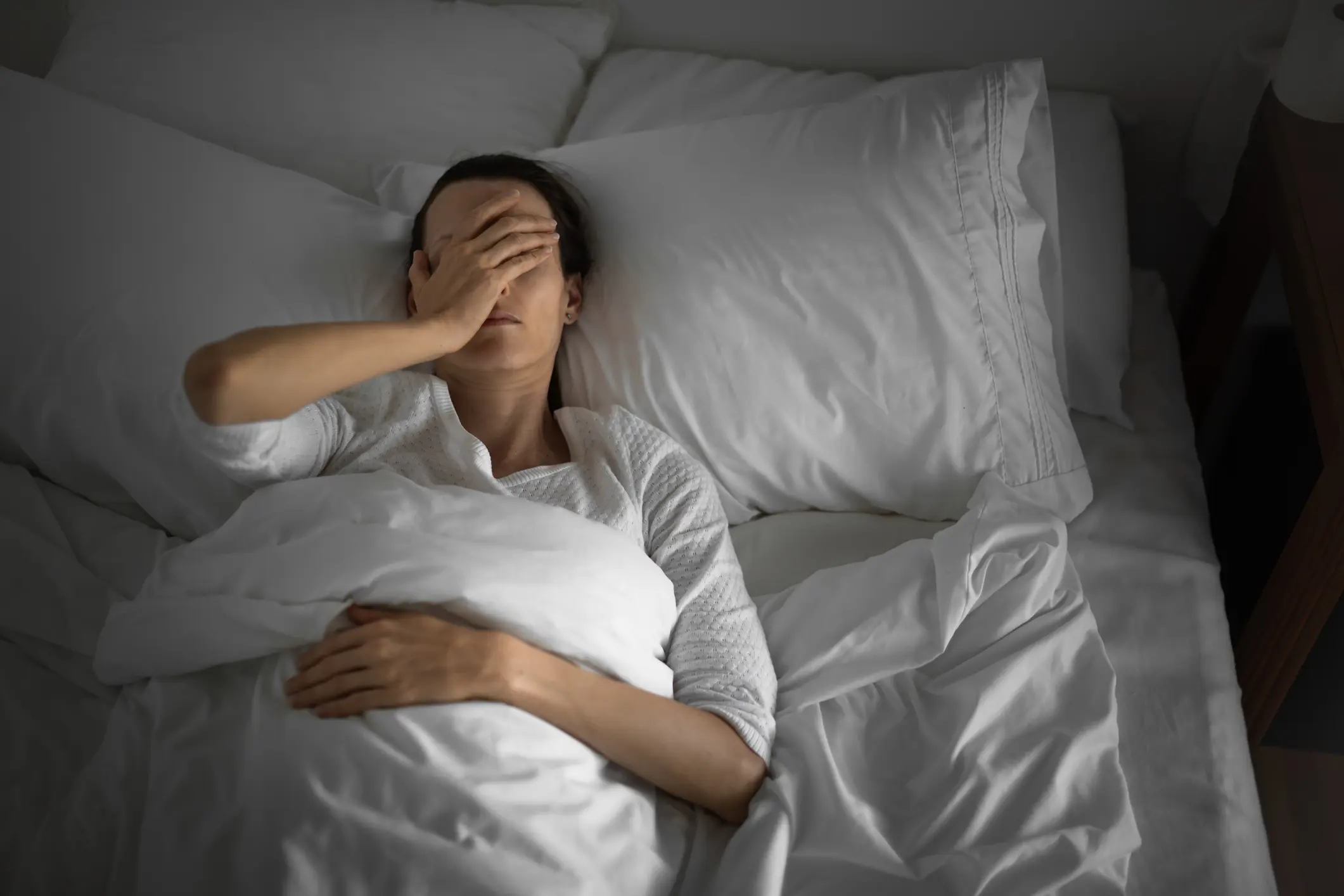
Published on Jan 08, 2024
Last modified on May 06, 2025
14 Teas That Are Good For Menopause
5 min read
Whether you’re a tea enthusiast or just dabbling in an attempt to cut down on caffeine (or that evening wind-down drink), we’ve got something for you.
Herbs, spices, and other plants have been used medicinally in tea form for centuries, so needless to say…this is nothing new. Teas are celebrated for their antioxidant-rich, anti-inflammatory properties (shout-out to powerful plant compounds called phytochemicals). It also helps that tea tastes good, too — whether you sip it solo, prefer it with a squeeze of lemon for vitamin C, or are on team milk and honey to jazz things up.
Below, we’ve rounded up 14 teas to stock up on this year for menopausal symptoms – whether that’s easing night sweats, regulating mood swings, or beating stomach bloat.
While a holistic, integrative approach to health is part of our philosophy at Elektra, it’s important to caveat this by saying that if you’re suffering from menopause symptoms, tea alone won’t cut it. Instead, you’ll need to think about your entire wellness “toolbox” of solutions: diet, lifestyle, supplements, non-hormonal medications, and/or hormonal options. And remember, this can change over time! Maybe you’re early in perimenopause and natural remedies are working wonders for you, but that changes a few years in. Or you’re postmenopausal and transitioning off hormone replacement therapy (HRT), turning instead to supplements and other herbal remedies. Symptoms aren’t static, and our approach to them shouldn’t be either.
TL;DR: Tea helps, but it’s not a panacea (if only!).
🙄 If you’re trying to beat bloat…
Bloating during menopause is likely nothing new since, for many of us, it was (or still is) a common PMS symptom. But that doesn’t make it any less annoying. Hormone changes during perimenopause can alter the composition and functioning of the gut microbiome, which often makes your stomach feel uncomfortably full and swollen due to water retention and trapped air in the abdomen. Teas may help – specifically those with natural diuretic properties such as green tea, peppermint tea, or spearmint tea.
And don’t forget about fennel, too. This herb helps promote healthy digestion and eases feelings of bloating and gassiness — plus, it’s been studied (in supplement form) in postmenopausal women and shown to have an effect on an array of menopause symptoms, including hot flashes, sleeplessness, anxiety, and vaginal dryness.
We’re also big fans of this DeTox tea from Yogi, which helps support digestion and circulation with burdock, dandelion, juniper, berry, ginger, and warming Ayurvedic spices like cinnamon, cardamom, and clove. Bonus points for the fact that it’s caffeine-free and doesn’t mess with our Zzzsss…more on that below.
1. Tazo Regenerative Zen™ Green Tea
2. Traditional Medicinals Peppermint Tea
3. Yogi DeTox Tea
4. Traditional Medicinals Fennel Tea
READ MORE: Elektra’s Full Guide To Abdominal Bloating During Menopause
💤 If you’re struggling with sleep…
You’ve probably heard a whole lot about caffeine by now, but just hear us out…
Caffeine has a half-life of 5-6 hours (or longer if you’re on certain types of medication). This means that after 5-6 hours, you STILL have half the original amount of caffeine in your body. Only after 10-12 hours will it be completely eliminated.
Although people’s sensitivities to caffeine vary, it can cause difficulties in sleep onset if it’s still in your body come bedtime. That’s why we recommend grabbing an herbal tea bag if you’re looking for a cozy beverage in the late afternoon or evening. Chamomile in particular is rich in flavonoids (natural plant chemicals known as phytonutrients) and has been studied as a central nervous system relaxer.
It also may be worth giving valerian root tea a whirl. The roots of this agent herb have been studied for centuries as a sleep promotor, and research shows that it works synergistically with GABA, a neurotransmitter with a calming effect. While you’ll find a whole lot of valerian products in supplement form, tea is also an option (usually 1 teaspoon of dried root steeped for 5-10 minutes in hot water). Don’t be surprised if you see combination teas as well — valerian root is often paired with a type of flowering plant called hops and a perennial herb from the mint family called lemon balm. All three have been shown in studies to aid in relaxation and sleep.
5. Equal Exchange Chamomile Tea
6. Buddha Teas Valerian Root Tea
READ MORE:
- Elektra’s Full Guide To Sleep Problems During Menopause
- Trouble Sleeping During Menopause? These Natural Sleep Aids May Help
😫 If you’re stressed and/or anxious…
As we approach the menopause transition, we’re juggling a lot! We may be caring for kids or aging parents, busy at work, or all of the above. So it’s natural to feel overwhelmed sometimes (or, let’s be real, most of the time). But if you’re finding that mood changes, stress, and/or anxiety is impacting your day to day life, it’s worth addressing.
Anxiety, which may — but doesn’t always — go hand in hand with depression, is thought to be influenced by hormonal fluctuations in estrogen, progesterone, serotonin (our “happy hormone” that helps regulate mood), and GABA. Lifestyle is key here since sleep, nutrition, and stress management play a huge role. And while many of us resort to grabbing a glass of wine in an attempt to soothe anxiety, creating a wind-down ritual around tea instead can help promote a sense of calm.
We’re big fans of chamomile for the reasons listed above, as well as holy basil. Also known as tulsi, this herb has been studied and shown, in supplement form, to help lower cortisol levels. Ginseng, which has been shown to help regulate stress-induced hormonal changes, may be worth trying as well.
7. Organic India Tulsi Sweet Rose Tea
8. The Republic of Tea Ginseng Peppermint Herbal Tea
We frequently get asked about St. John’s Wort, a supplement that you can also find in tea form. It’s commonly used for depression, but if you’re considering this, Elektra strongly recommends discussing it with your provider to ensure you’re not risking any negative interactions or side effects with other supplements or medications. Also, if you’re experiencing feelings of depression, it’s important that you see a provider first for an evaluation.
READ MORE:
- Elektra’s Full Guide To Anxiety During Menopause
- Elektra’s Full Guide To Mood Changes During Menopause
🥵 If you’re suffering from hot flashes…
Ahhh, hot flashes, how we detest thee. Due in large part to hormonal imbalances (specifically estrogen), hot flashes can disrupt daily life BIG TIME. Fortunately there’s a lot we can do about it (including a new non-hormonal drug called VEOZAH!).
When it comes to tea, consider black cohosh. Also known as rattleweed and bugbane, black cohosh is a perennial herb that belongs to the buttercup family. It’s also a phytoestrogen, which is a fancy term for a plant-based compound that mimics the effects of estrogen in the body (soy is another example). While the jury’s still out on the effectiveness of black cohosh in supplement form for hot flashes, some women have anecdotally reported positive experiences.
There’s also been research on the impact of sage, licorice root, and red clover on hot flashes, although keep in mind that most studies have been conducted in supplement, not tea, form.
9. Buddha Teas Black Cohosh Root Tea
10. Full Leaf Tea Co. Sage
11. Traditional Medicinals Licorice Root Tea
12. Traditional Medicinals Red Clover Tea
If you google menopause tea for hot flushes, you may also come across dong quai, a Chinese herb that’s traditionally been used in women’s health to ease menstruation symptoms. It’s not on our list because there’s too much conflicting evidence around it — there are studies that find no effect of dong quai on hot flashes while others do (but only when dong quai is combined with chamomile). The consensus? Taken alone, it does not appear to do much.
READ MORE:
- Elektra’s Full Guide To Hot Flashes & Night Sweats
- There’s A New Non-Hormonal Treatment For Hot Flashes
- Can Hot Flashes Make You Dizzy?
- Is It Just Me, Or Do Hot Flashes Get Worse During Summer?
💪 🦴 If joint pain is getting to you…
In medical lingo, joint aches are known as “arthralgia” and muscle aches, “myalgia.” Both become increasingly common with age and the onset of menopause — a double whammy.
Inflammation is one of the main culprits behind joint pain, and it all boils down to hormonal fluctuations.
Estrogen binds to the receptors on our joints and connective tissues. So when levels decrease during menopause, it can affect cartilage metabolism and lead to inflammatory pain. Estrogen also plays a role in the lubrication of our joints, so with less of it, we get less lubrication and more wear and tear.
Turmeric is an anti-inflammatory spice with a long list of health benefits thanks to its star ingredient, curcumin. Among its benefits: easing joint and muscle pain (with the caveat that, like other ingredients, it’s been studied in extract form, not tea form).
13. The Republic of Tea Turmeric Ginger Green Tea
14. Tazo Turmeric Bliss
READ MORE:
- Elektra’s Full Guide To Joint & Muscle Aches
- Elektra’s Full Guide To Osteoporosis
- Is There A Test For Bone Density? Should We Be Getting It?
📢 An important note on hormone balance…
Be wary of teas (or any other products, supplements, or programs) that promise to “balance your hormones.” No, they may not cause any harm, but it’s misleading and unrealistic to expect that hormones can be perfectly balanced.
They never are, regardless of age! They go up, they go down…but they do so in an orchestrated way that makes sense in the body. Once we hit perimenopause, our hormones fluctuate even more because our body is going through a transitional period. This is why, in the field of menopause medicine, we prioritize and respond to symptoms rather than labs.
If you’ve had a positive experience with a tea or supplement or diet regimen or workout program designed to support your hormone health and ease symptoms of menopause, GREAT. We’re so happy to hear it, and we applaud you for taking charge of your health. But we need to get away from this prescriptive way of thinking and instead remember that there’s a plethora of tools available to us: supplements, nutrition, medications, conversations with friends. And as always, make sure you’re getting your advice and recommendations from experts.



